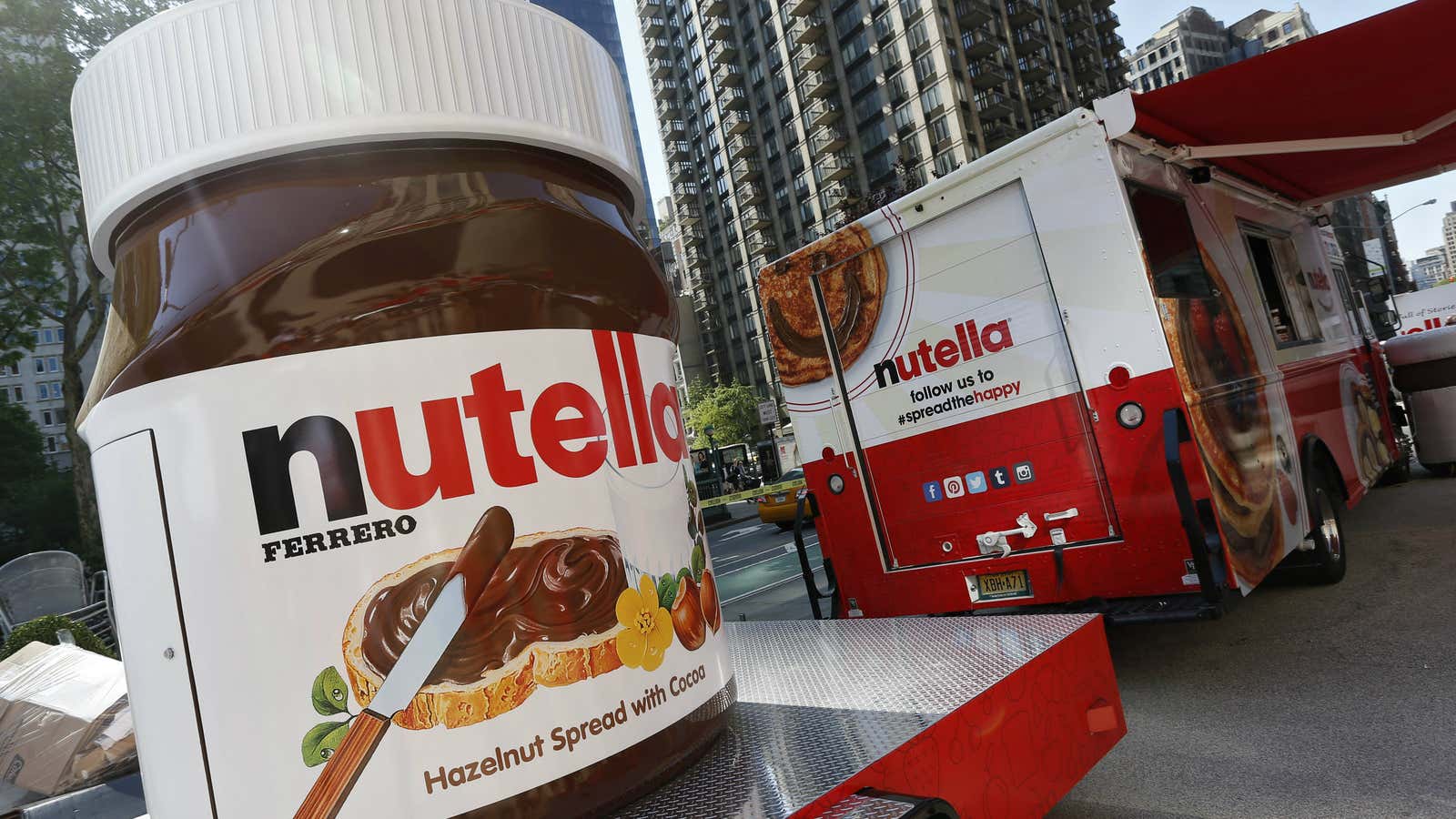This post has been updated.
Ségolène Royal, France’s ecology minister, just picked a fight with everyone’s favorite hazelnut-chocolate spread: Nutella.
“We should stop eating Nutella,” she said in an interview last night on the French television network Canal+, “because it’s made with palm oil.” Royal was referring to the chocolate hazelnut spread as an example of a food made with the often environmentally destructive but very commonly used ingredient.
“Oil palms have replaced trees, and therefore caused considerable damage to the environment,” she said.
Indeed, forests from Guatemala to Indonesia have been cleared to make way for palm oil plantations, and that is far from the only problem with the palm oil industry. Its critics say it employs child workers, and has a host of other labor-related problems, including wage exploitation, unsafe working conditions, and human rights abuses.
But demand for the product has hardly waned. Palm oil is found in half the packaged products on shelves in US grocery stores, though it is often listed as “vegetable oil” on ingredient lists. And with the new US ban on trans fat, it will likely increase even more, as palm oil can be used as a substitute for the banned fat, Bloomberg reports.
Sustainable palm oil is possible and available, say companies and advocacy groups, and earlier this month the European Palm Oil Industry announced a plan to provide 100% certified sustainable palm oil by 2020. Individual companies have made similar commitments, with Kellogg’s for example, saying in February 2014 that it would only buy palm oil from suppliers that operate with environmental responsibility. (Newly released research indicates that consumers will pay the higher prices, The Independent reported today.)
And Nutella appears to have made serious progress in cleaning up its palm oil supply chain. Ferrero—the maker of Nutella—said a few months ago it had reached its goal of using only palm oil that has been certified by the Roundtable on Sustainable Palm Oil, a year ahead of its target. The RSPO is a multi-stakeholder organization, that includes industry members, environmental groups, banks and other interested parties. Nutella’s palm oil comes mostly from Malaysia, as well as from Brazil, Indonesia and Papua New Guinea, according to reports.
Greenpeace, the environmental advocacy group, told Quartz in a statement that it opposes a boycott of products with palm oil because ”a blanket boycott of this agricultural crop will not solve problems in its production.” Ferrero, Greenpeace notes, is a supporter of the Palm Oil Innovation Group, which includes Greenpeace, other NGOs and some palm oil producers, and has “an ambitious policy” to improve its palm oil supply. “We therefore consider Ferrero to be one of the more progressive consumer-facing companies with regards to palm oil sourcing,” the organization said.
Verité, an international fair labor organization that has reported on abuses (pdf) in the palm oil industry in the past also says there is no need to boycott Nutella. “Consumers should be aware of how prevalent palm oil is and how destructive it can be,” says Dan Viederman, CEO. “But Ferraro seems to be one of the few companies that have endorsed the higher standards.”
In a statement to Quartz, Ferrero USA declined to comment on Royal’s statements, but noted that its palm oil use represents a “mere 0.3% of the worldwide palm oil production” and that all of the company’s products are 100% certified as sustainable according to the RSPO.
This post has been updated with statements from Verité and Ferraro.




